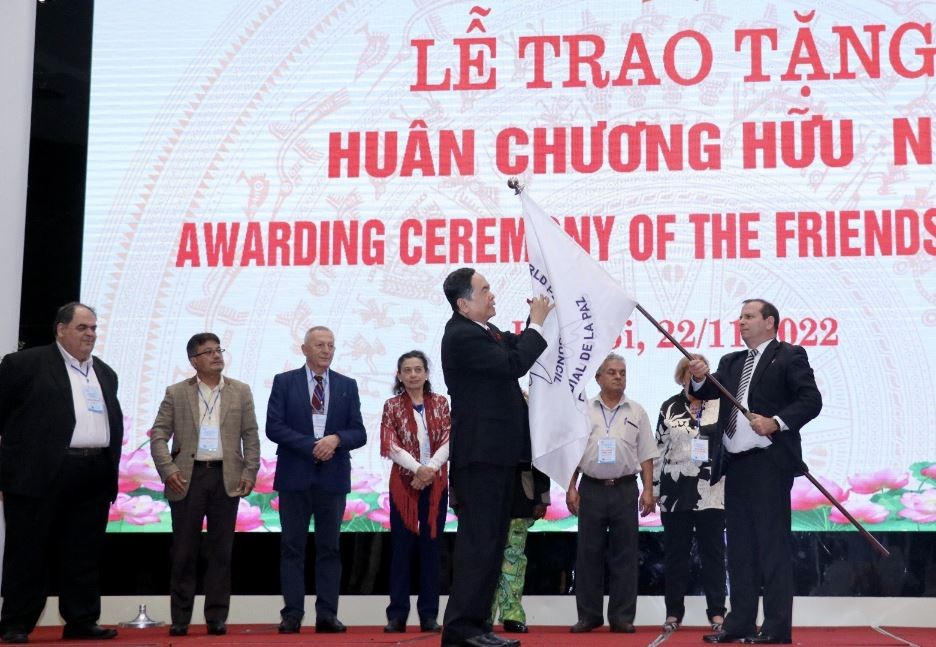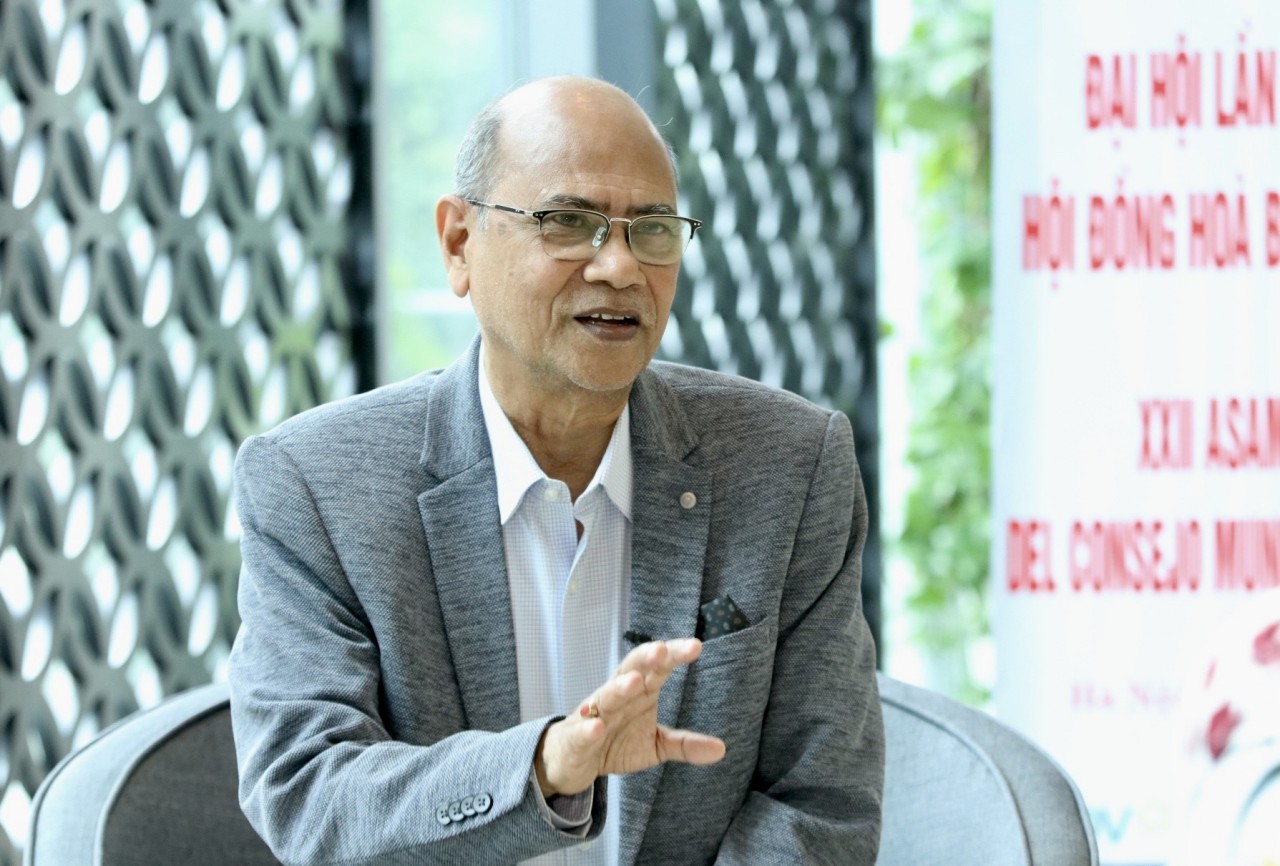Prof, DoS, People's Teacher Vu Minh Giang - Chairman of Science and Training Council, Vietnam National University in Hanoi, Vice Chairman of Vietnam Association for Historical Science, member of Vietnam Peace Committee's presidium
The Amiability Tradition of the Vietnamese People
As a crossroads in geography and culture, throughout its history, Vietnam has been exposed to and exchanged with many cultures and civilizations. In that process, Vietnam has become a good land for many communities, with different historical and cultural traditions, to settle down and build their lives, thereby, a country of different ethnicities was born.
Up to now, 54 ethnic groups living harmoniously on the S-shaped strip of land, uniting in the common destiny of Vietnam. Amalgamation (acceptance of all differences) has been present in the Vietnamese traditional culture since the ancient age.
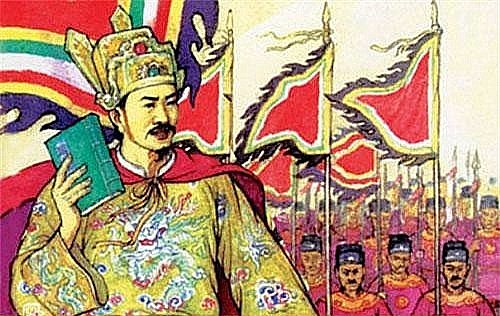 |
| Le Loi once forgave the enemy's soldiers, allowing them to keep their lives. |
Amiability is the foremost priority
Due to its strategic geo-political position, Vietnam often had to conduct defending wars against foreign invaders who were always powerful and aggressive forces. The Northern feudal empires from the Qin, Han (BC) to Qing (late 18th century), there was no dynasty that did not at least once invade Vietnam. As the Western colonial forces invaded the Oriental countries, Vietnam had to fight against the world's leading imperial powers.
Continuously experiencing wars and suffering severe war consequences, Vietnam understands more than anyone else the value of peace. Thus, along with its tradition of peace and friendship, the Vietnamese people always seek to preserve peace and avoid war.
Even when its enemies' aggressive intentions were clear, the Vietnamese people sought to calm or delay armed conflict. It was only when there was no chance to preserve the peace that they were forced to stand up and fight back. Once they had to arm up, the Vietnamese people's indomitable and tenacious spirit terrified all foreign invaders.
According to Dai Viet Su Ky Toan Thu (The great book of feudal Vietnamese history), in the 10th century, after reunifying China to establish the Song Dynasty, the Northern neighbor's feudal government raised the intention to invade Vietnam. Before bringing in the invaders, Emperor Taizong of Song wrote a letter with insolent words: "Will you submit or not? Don't make a mistake. I am revising the army, preparing all kinds of gongs and drums. If you submit, then I will forgive you. If you go against my will, I will send the army. Sumit or not, good luck or bad luck, it is your call."
| According to Prof. Vu Minh Giang, it is proven by history that since ancient times, Vietnam's feudal governments took harmony and amiability as the first priority, behaving in a humble manner, and avoiding confrontation. From the Dinh - Le dynasties to the later feudal dynasties, Vietnam's monarchical governments took the protocol of the small, humble country to treat the Chinese empires through tributary and feudatory. |
Vietnamese King Le Hoan kept his calm attitude, sent a mandarin carrying gifts to Beijing, asking for ordination in humble words: "I hope to officially receive the order, just enough to be ranked in the state to reassure my loyalty as a humble servant, and upholding the bless of the Celestial Empire". However, the Song army still did not give up their intention to invade Vietnam. History proves that on the Bach Dang river battle in 981, the Song army was defeated by Dai Co Viet's army and people under the command of Le Hoan.
In just over 60 years under the reign of the first kings in the Ly dynasty, 23 delegations were sent to the Song dynasty to discuss friendship and peace. Dai Viet wanted peace between the two countries. Even when the Song army lined up along the border in 1075, the Ly dynasty, on one hand, decided to fight back, but on the other hand, still tried to avoid the war.
At the time when the Song army was in trouble, their will was weakened, unable to continue the attack, yet they could not surrender, fearing losing face, Ly Thuong Kiet proposed a solution so that the Song Dynasty could carry on the battle with dignity. His idea was "No need to sacrifice any lives, but still preserve the dignity." He sent an envoy to inform the Song general, Guokui, that "You make a command to withdraw the army, then we immediately send an envoy and gift to apologize".
In the 13th century, Dai Viet's army and people had to deal with the most powerful army in the world at that time. Although they won the first battle in 1258, the Tran Dynasty strived to avoid confrontation with the Mongols as they understood the strength and ferocity of an army that conquered Asia and Europe.
To implement the peace plan, the court was forced to accept arrogant claims. The king had to let his uncle pay a visit to the Mongol land. In 1281, the Khan empire established An Nam chaplaincy, blatantly considering Dai Viet as its own territory. Deputy chaplain Sai Thung, was a bossy personality, he "walked around in the street, bending his tongue of owl and buzzard to scold the court, using his body of goat and dog to bully the civilians... requesting for silk and pearls to satisfy his endless greed,... collecting gold and silver to dredge up our limited source" (Tran Hung Dao's words in the Exhortation to the Military Generals). The court was still patient. Dai Viet had 27 precious years of peace to prepare for the inevitable resistance war. When the red line of national sovereignty and independence was violated, the whole country stood up in unity to earn glorious feats.
The tradition of kindness, forgiveness, and tolerance
Similar historical lessons can be found in subsequent historical periods. For example, Le Loi and Nguyen Trai were on the winning side, they were tightening the blockade, and were able to eliminate all enemy troops in Dong Quan, yet they advocated leaving an escape route for the enemy with the hope to soon restore peace. In The poem of Mountain Chi Linh, Nguyen Trai wrote:
"Nghĩ kế nước nhà trường cửu
Tha cho mười vạn hàng binh
Gây lại hòa hảo hai nước
Dập tắt chiến tranh cho muôn đời".
(Roughly translation: When I think of the country's long-lasting
I let tens of thousands of soldiers keep their lives
To restore the peace between our two nations
To forever put an end to war.)
Another example, in a battle against the Qing Dynasty at the end of the 18th century, right after his triumph against 29,000 invaders in Ngoc Hoi and Dong Da, Quang Trung sent messengers to the Qing Dynasty, saving face for the imperial court so that they would not declare another war just to save their dignity.
| “From a village-style wet rice civilization with outstanding features of harmony, the Vietnamese people have embodied many values of human civilizations, the earliest of which is the Chinese and Indian civilizations. If Confucian values have nurtured the Vietnamese culture, Buddhist values have contributed to deepening the tradition of kindness, forgiveness, and tolerance…”, said Prof. Vu Minh Giang. |
Vietnam's tradition of peace is not only expressed in the foreign policy during the struggles for national independence and defense but also deeply imprinted in the tradition, culture, customs, and practices of the people and especially in the cultural heritage. In any country's cultural heritage, folklore has a crucial position because it is the creation of the masses and often carries broad ideas passed down from generation to generation.
Therefore, folk songs and proverbs can be considered a valuable source of material for studying the tradition of harmonious behavior - tolerance of Vietnamese people in behaving, from family members to the society and in all different situations. The tradition of "Love of the village and the neighbor", "Good leaves protect the torn leaves", "Sharing both the sweet and the bitter", "To share joys and sorrows", and "When drink water, remember the source"... always appreciated.
Everyone has absorbed that precious cultural tradition ever since they were babies through their mothers' simple, pure and meaningful lullabies: "Calabash, adore gourd. Even though you are from different types, you are planted on the same truss." ... Vietnamese life, through the image of the gourd in that lullaby, along with many other lullabies that the mothers sing, has led the child to enter the traditional culture of the Vietnamese people.
Thus, it can be seen that the spirit of peace has penetrated deeply into the blood of every Vietnamese citizen both in the struggle to protect the country's sovereignty, maintain a peaceful environment in the region and around the world, and in daily life. That spirit never stops turning off, but it always has the power to inspire and spread in life. Wherever, whenever there is a new wind, that fire is blown up again.
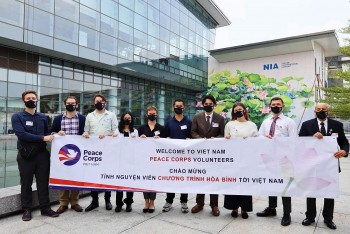 | US Peace Corps Volunteers Teaching English in Hanoi These 10 volunteers will work alongside English Teacher Counterparts in Hanoi's district Secondary Schools, contributing to promoting the comprehensive partnership between the two countries as ... |
 | 200 Foreign and Domestic Artists to Perform Peace Concert in Hanoi In order to contribute a voice to the desire for a better future, peace and happiness of people all over the world, the Vietnam National ... |
 | Peaceful Moments Throughout Tranquil Hanoi Vietnam's capital, despite being a bustling place, has plenty of peaceful corners and vistas. |
Recommended
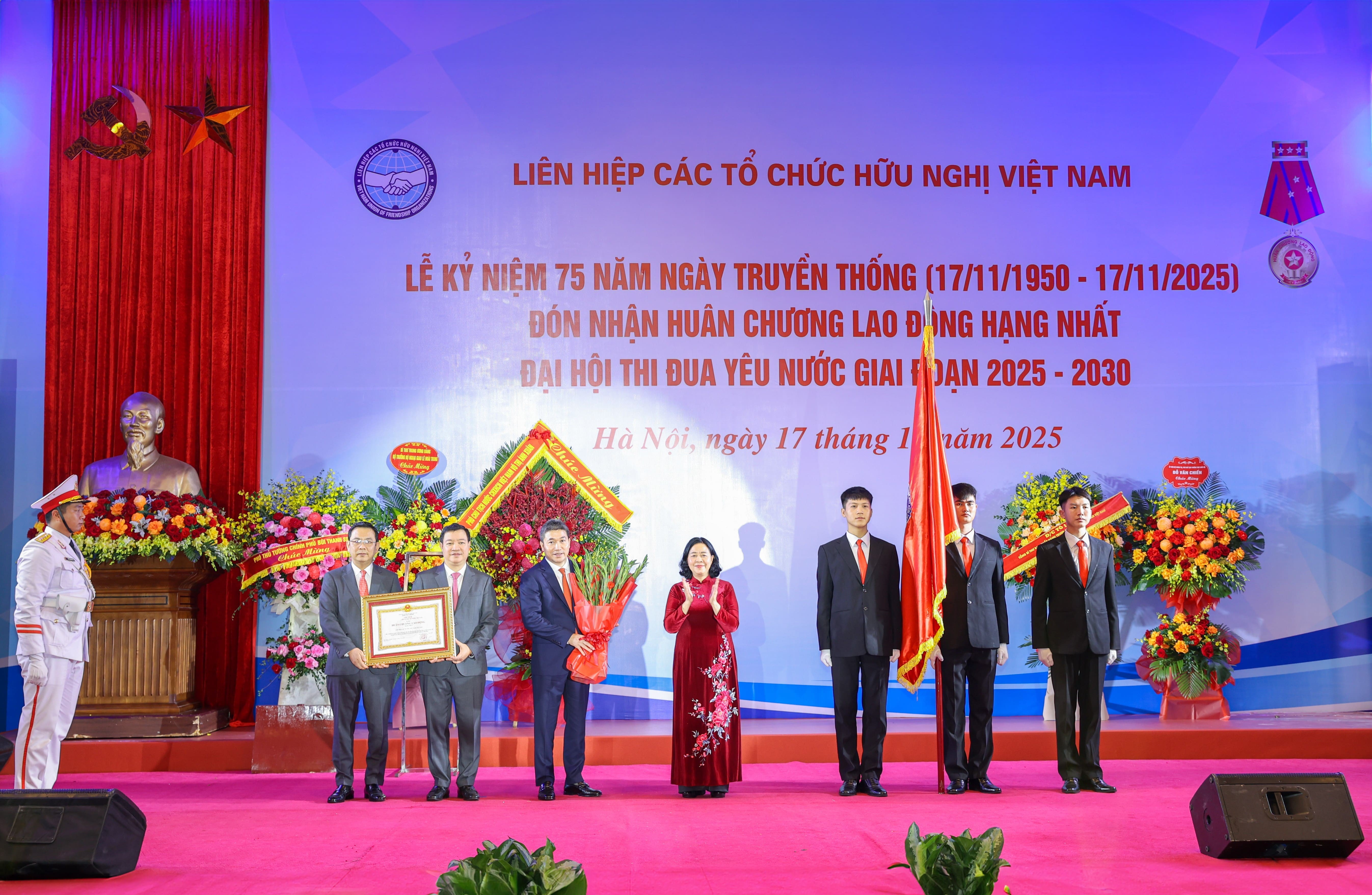 Friendship
Friendship
People-to-People Diplomacy: Change to Reach Further
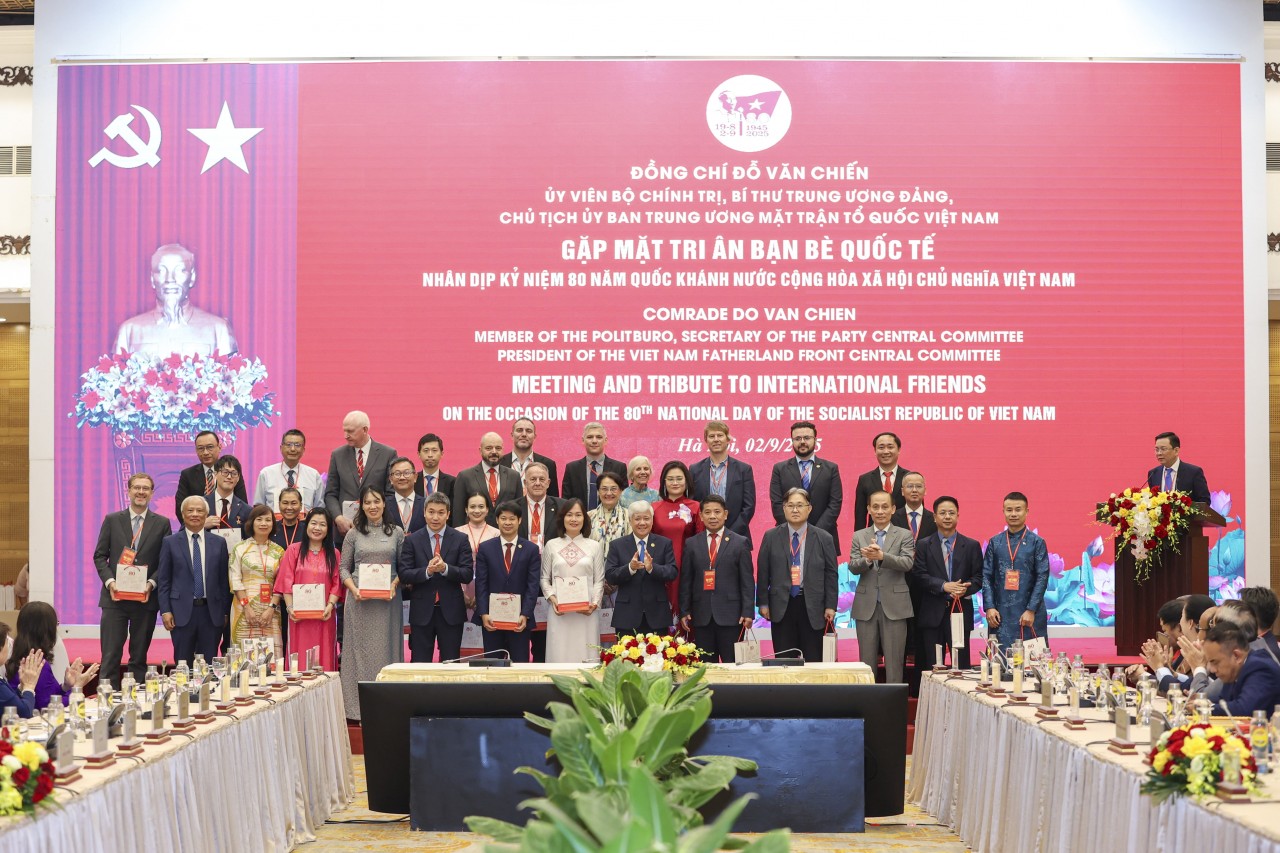 Focus
Focus
Outstanding Highlights of Viet Nam’s People-to-People Diplomacy in 2025
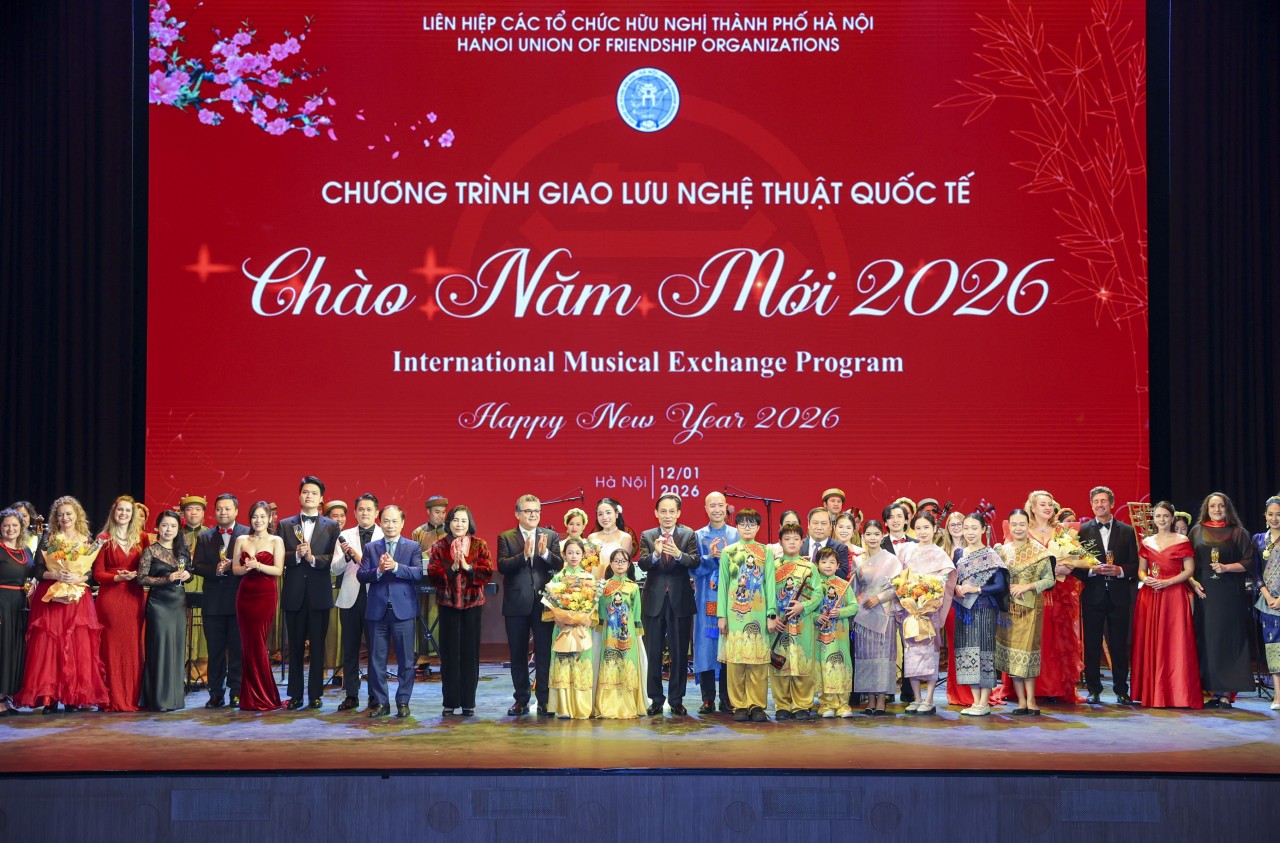 Friendship
Friendship
Hanoi Union of Friendship Organizations: Spreading Values of Peace in Heart of Capital
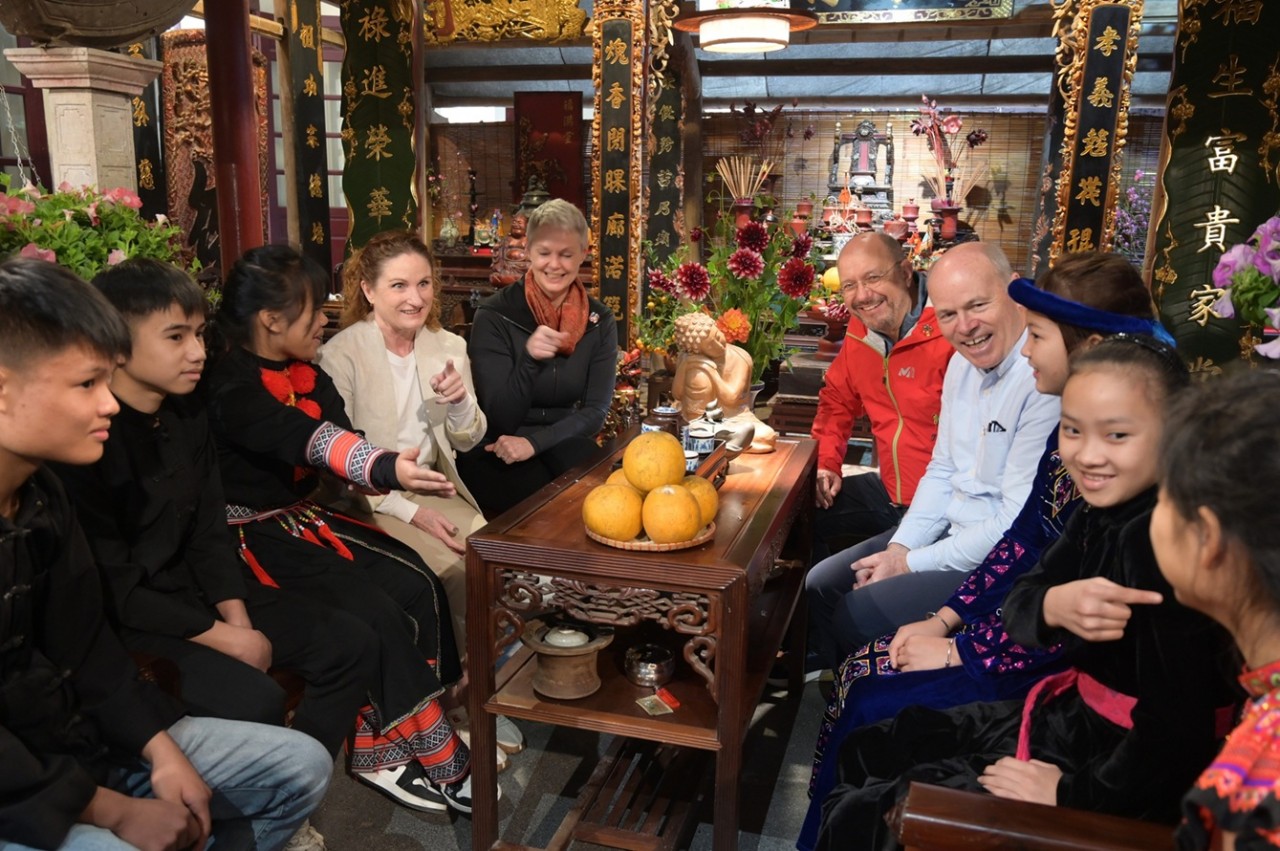 Friendship
Friendship
G4 Ambassadors to Vietnam Extend Greetings for the New Year of the Horse
 Friendship
Friendship
Promoting People-to-People Cooperation on the Occasion of the 55th Anniversary of Vietnam-Chile Relations
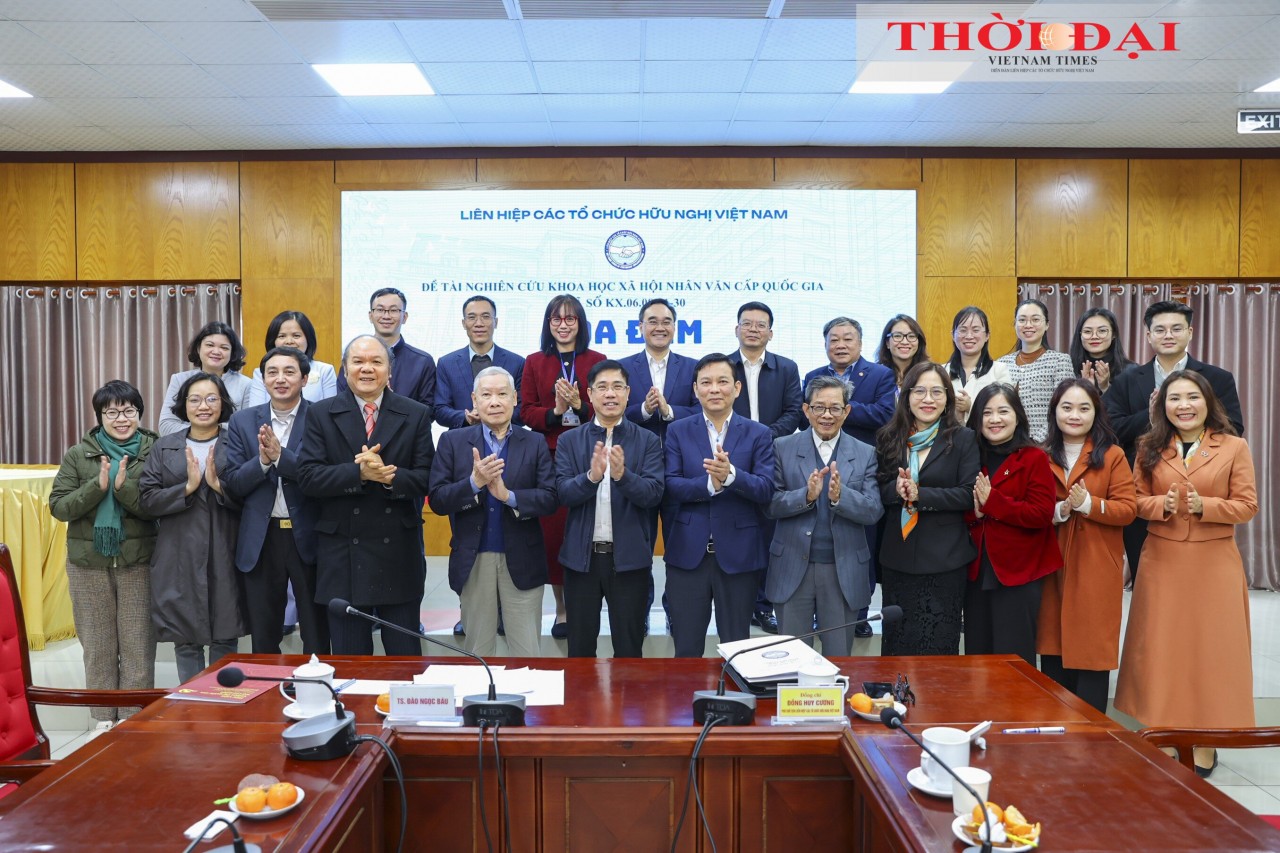 Focus
Focus
Seminar on “The Scientific Foundations of People-to-People Diplomacy in the World”
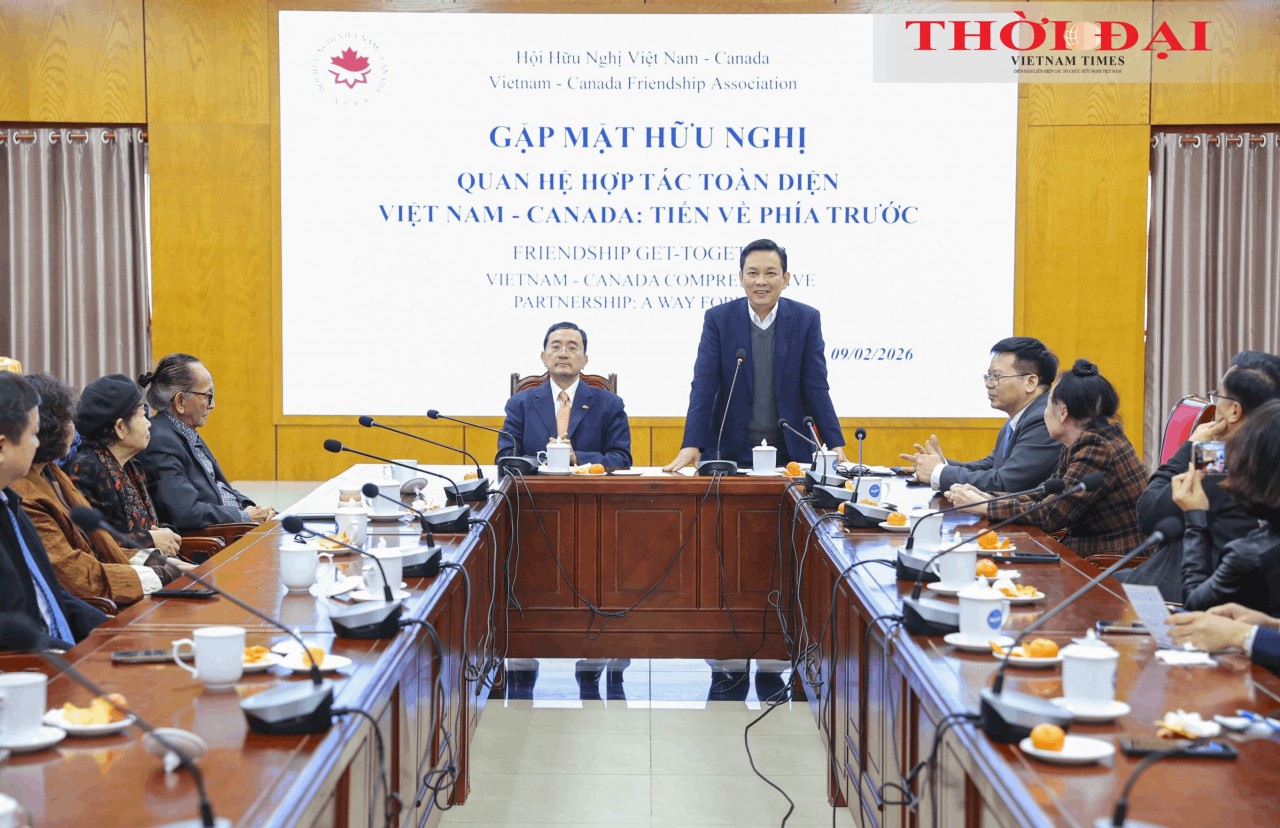 Friendship
Friendship
Vietnam-Canada Friendship Meeting: Advancing Comprehensive Cooperation through People-to-People Diplomacy
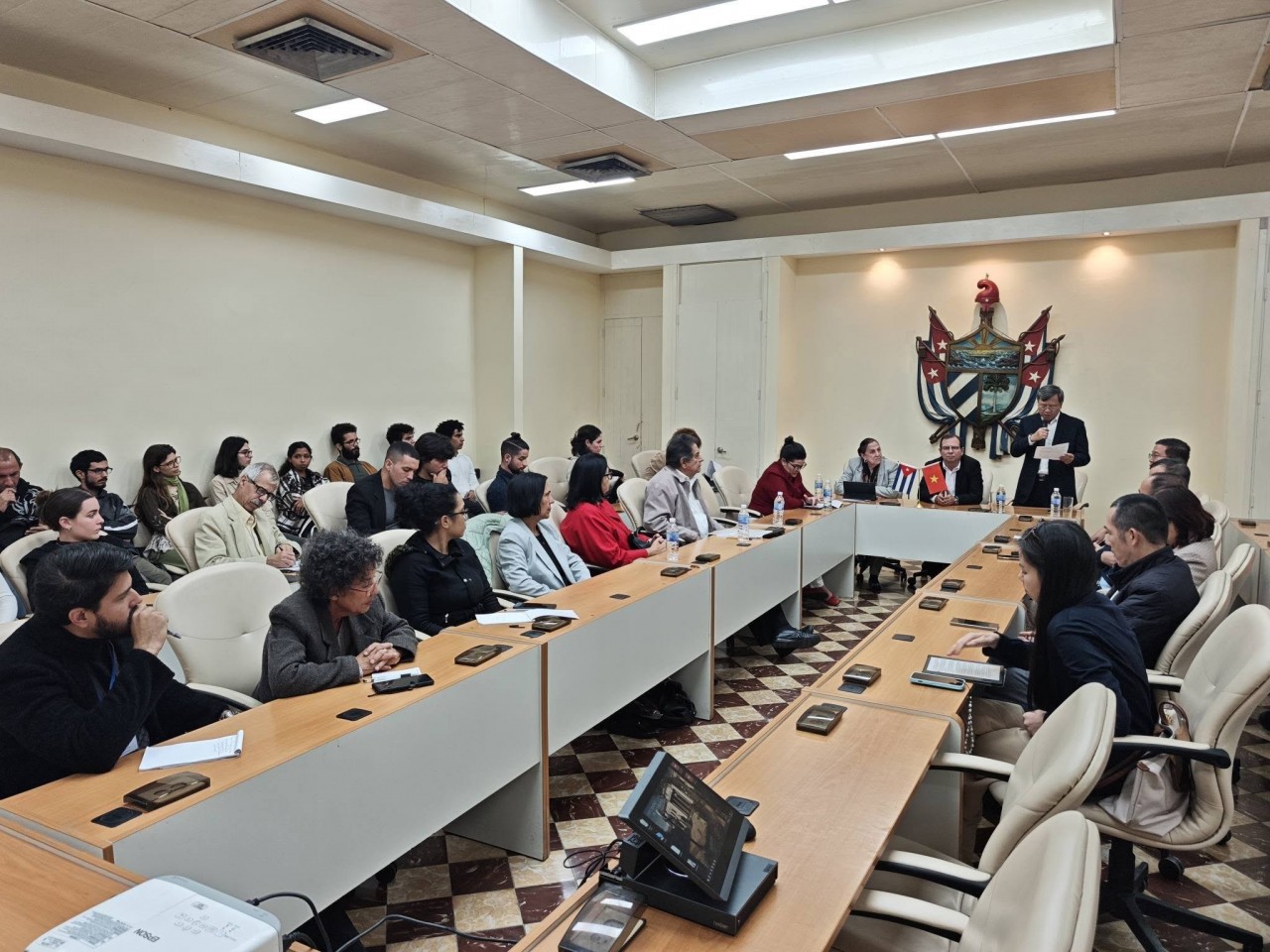 Friendship
Friendship

